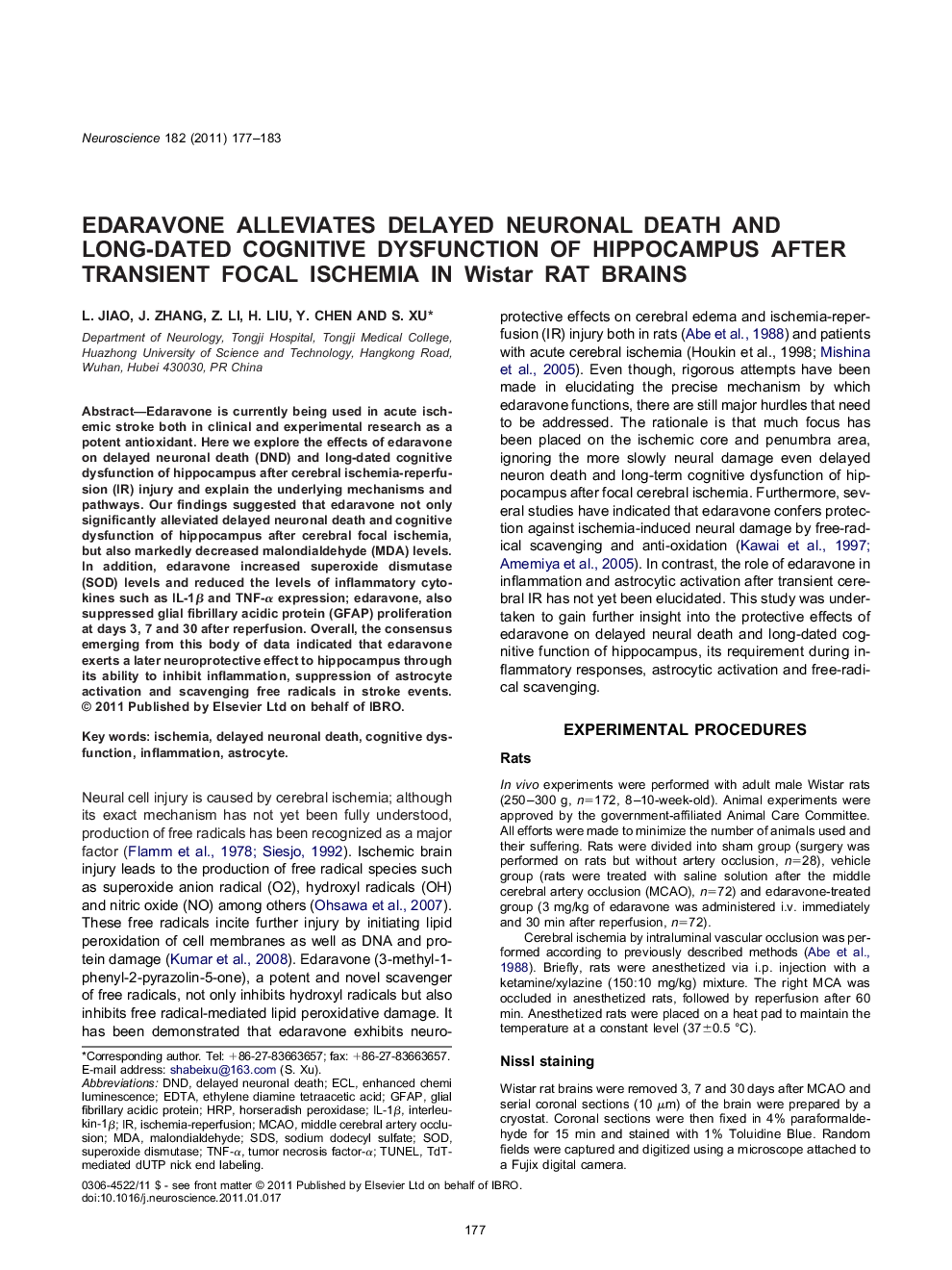| Article ID | Journal | Published Year | Pages | File Type |
|---|---|---|---|---|
| 4338970 | Neuroscience | 2011 | 7 Pages |
Edaravone is currently being used in acute ischemic stroke both in clinical and experimental research as a potent antioxidant. Here we explore the effects of edaravone on delayed neuronal death (DND) and long-dated cognitive dysfunction of hippocampus after cerebral ischemia-reperfusion (IR) injury and explain the underlying mechanisms and pathways. Our findings suggested that edaravone not only significantly alleviated delayed neuronal death and cognitive dysfunction of hippocampus after cerebral focal ischemia, but also markedly decreased malondialdehyde (MDA) levels. In addition, edaravone increased superoxide dismutase (SOD) levels and reduced the levels of inflammatory cytokines such as IL-1β and TNF-α expression; edaravone, also suppressed glial fibrillary acidic protein (GFAP) proliferation at days 3, 7 and 30 after reperfusion. Overall, the consensus emerging from this body of data indicated that edaravone exerts a later neuroprotective effect to hippocampus through its ability to inhibit inflammation, suppression of astrocyte activation and scavenging free radicals in stroke events.
▶Edaravone alleviates delayed neuron death of hippocampus at 3, 7 and 30 days after focal cerebral ischemia. ▶Edaravone improves long-dated cognitive function of hippocampus after focal cerebral ischemia. ▶The role of edaravone in inflammation and astrocytic activation after transient cerebral IR has been elucidated.
